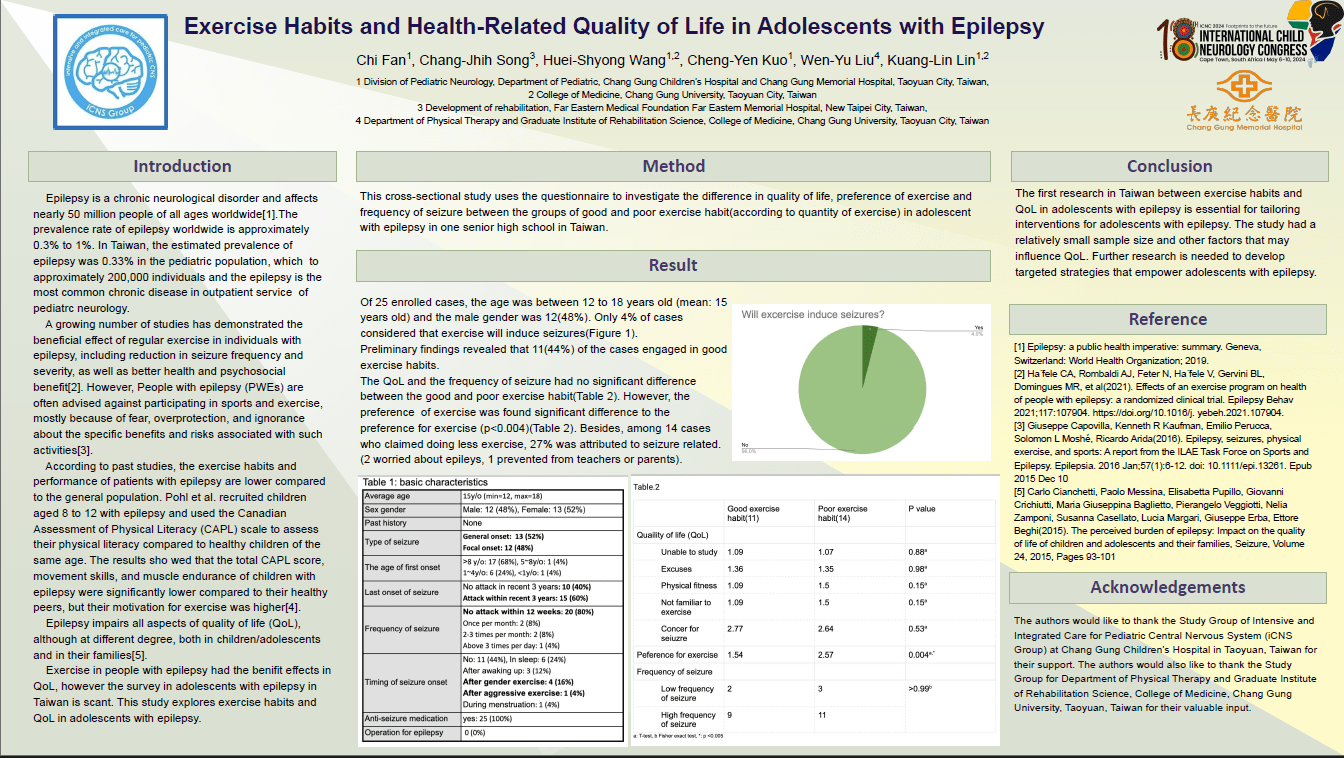Exercise Habits And Health-Related Quality Of Life In Adolescents With Epilepsy
Objective: Epilepsy is a chronic neurological disorder and influences significantly the person’s quality of life (QoL). Exercise in people with epilepsy had the favorite effect in QoL and the survey in Taiwan is scant. This study explores the relationship between exercise habits and QoL in adolescents with epilepsy.
Methods: This cross-sectional study in one senior high school in Taiwan uses the questionnaire to investigate between-group comparisons that are made to assess exercise habits, differentiating between good and poor exercise habits, and their impact on the QoL, specifically in relation to active or inactive seizure frequency.
Result: Of the enrolled adolescent of epilepsy 25 people, were from 12 to 18 years old(mean: 15 years old) and 12(48%) was male. Preliminary findings indicate that 11(44%) of the adolescents with epilepsy engaged in good exercise habits. The quantity of exercise is significantly related to the preference for exercise but not correlated to the seizure frequency. Poor exercise(14, 56%) was identified as a seizure-related factor in 27% of cases. There was no observed correlation between active seizure frequency and exercise habits or QoL in the study. Only 4% of participants consider that exercise will induce seizures. The study had a relatively small sample size and other factors that may influence QoL.
Conclusion: The interplay between exercise habits and QoL in adolescents with epilepsy is essential for tailoring interventions for adolescents with epilepsy. Further research is needed to develop targeted strategies that empower adolescents with epilepsy.
Chi Fan
Chang Gung Children’s Hospital and Chang Gung Memorial Hospital
Taiwan
Chang-Jhih Song
Far Eastern Medical Foundation Far Eastern Memorial Hospital
Taiwan
Kuang-Lin Lin
Chang Gung Children’s Hospital and Chang Gung Memorial Hospital
Taiwan

Chi Fan
Chang Gung Children’s Hospital and Chang Gung Memorial Hospital
Taiwan